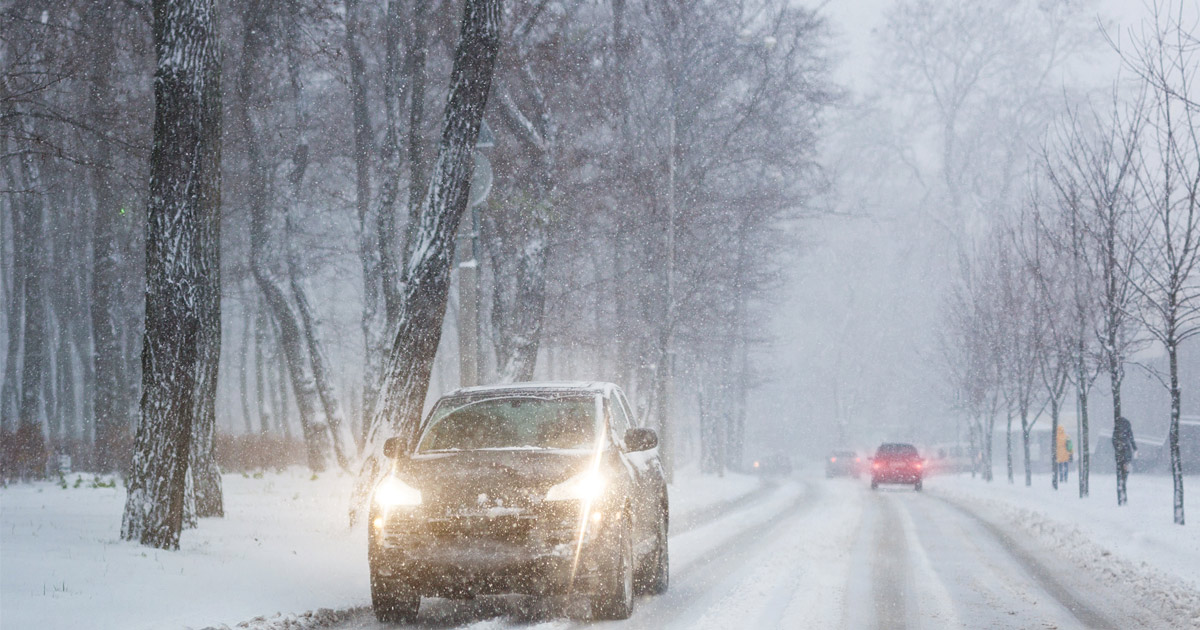Winter weather can be unpredictable, and in New Jersey, one never knows how much snow, ice, and rain the colder months will bring. Keeping this variability in mind, drivers can do themselves a favor by keeping their vehicles prepared for the possibility of inclement weather. Keeping the car in good condition and understanding how to drive safely in poor weather can decrease accidents and save lives.
How can I Prepare My Car for Winter Weather?
Winterizing a car begins with a maintenance check-up. It is recommended to check the tires and tire pressure, oil, radiator, battery, brakes, belts and hoses, exhaust system, wipers, ignition, heater, and defrosters. Some drivers change over to winter tires, but this is not always necessary. The gas tank should be checked often and be kept at half-full. Getting stranded in a snowstorm and running out of gas could be disastrous.
A cold-weather emergency kit should also be kept in the trunk, which includes water, snacks, a flashlight, and warm clothing. An extra blanket and glass scraper can also be helpful. People who need medications may also want to bring along extra supplies in case of an emergency. Listening to weather reports before leaving is also a good idea.
How can I Drive Safe in Bad Weather?
When driving in poor weather conditions, drivers should slow down. Following distances between cars should be increased to five or six seconds, since it takes longer to slow down on slippery roads. Drivers should also accelerate and decelerate slower than usual, since not doing so can make cars skid. AAA advises motorists driving in slippery conditions to only stop when they have to, such as when there is a traffic light; it is harder to start going again once the vehicle has stopped. Any sudden movements of the steering wheel should be avoided, and blinkers should be used as much as possible.
Hills can be challenging when they are covered with snow or ice. Pushing down on the gas pedal does not help, since it can make the wheels spin. AAA directs motorists to give it a little gas on a flat roadway as the hill approaches, and to let the momentum carry the vehicle up to the top. Stopping while going up a hill is not recommended, since it may be impossible to get going again. Once at the crest, the speed can be reduced and the car can slowly proceed downhill.
Experts also advise drivers to never use cruise control in wintry weather, or even when it is raining. Many people are unaware that if cruise control is on and the vehicle skids or hydroplanes, it will make the car accelerate. It will spin the wheels in an attempt to maintain that constant speed, which can make drivers more likely to lose control. If the car does skid, drivers should steer into the direction of the skid. This way, when the wheels regain their traction, the driver will not have to overcorrect to maintain the vehicle’s position.
What Other Safety Precautions can I Take?
Basic safety precautions are even more important during winter driving conditions. Before leaving the house, drivers should ensure that the car’s windows are clear; some windshield wipers are made for winter conditions, which makes it easier to see when it is raining and snowing. If there is snow on the vehicle, it should be cleared off before driving. When large chunks of snow fall off moving cars, it can cause accidents.
Drivers who do not slow down when turning onto a new road can skid, fishtail, or crash. If there are snowplows on the road, other drivers should maintain a safe distance and avoid passing them. Even though these large vehicles move slowly and other drivers want to pass, they have limited sight lines because of the blowing snow, salt, or sand and may not see other cars nearby.
Although whiteout conditions are not that common, they can occur, putting everyone on the road in precarious positions. When this happens, it is best to pull off the road to wait it out. If visibility is limited, other drivers may not be able to see a vehicle sitting there.
Hazlet Car Accident Lawyers at Mikita & Roccanova Advocate for Victims Injured in Winter Accidents
No one wants to become involved in a car accident, but hazardous winter driving conditions can increase one’s chances. If you were involved in a car accident, contact the Hazlet car accident lawyers at Mikita & Roccanova today. Call us at 732-705-3363 or complete our online form for a free consultation. Located in Hazlet, New Jersey, we serve clients throughout Ocean County, Sussex County, and Pennsylvania.


